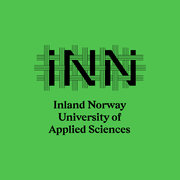
The scientific think-tank Lithuanian College of Democracy in collaboration with Ossiannilsson Quality in Open Online Learning (QOOL) Consultancy (Lund, Sweden), will present the ongoing project “Digital Inclusion for All Learners (DI4All)” and a report on children’s and youth’s media use on October 19, at the digitalization and practices of inclusion – conference and publication workshop organized by Norway Inland University of Applied Sciences.
The DI4All project encourages educational innovation, such as digital inclusion, in order to improve students’ key competencies, skills, and learning outcomes in the classroom. The primary goal of the DI4All initiatives is to increase educators’ capacity to improve digital inclusion and combat misinformation through training and education. The initiative is supported by funds from the European Union’s Eramus+ program.
In a societal perspective, digitalization is often understood as the solution to several problems, but how does this play out in the practical technology use? Is the focus on hardware and software or on the human and social systems (cf. Warschauer 2003, p. 6)?
This interdisciplinary workshop, which is also part of the PhD course, will focus theoretically and empirically on digitization and inclusion. The concept of inclusion includes policies or ideologies “that governments and other policymakers use to change or improve schools, workplaces, housing, or other community institutions to accommodate a diversity of people and, in particular, to include people who experience exclusion.” (Haualand 2017, p. 317). The concept itself is not without its problems; who should be “included” and who is responsible for this inclusion, in what? The seminar will critically examine inclusion practices, discuss empirical work and theoretical methods in researching the role of technology in inclusion practices.
www.lduk.lt information
